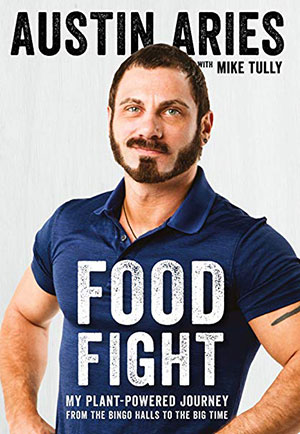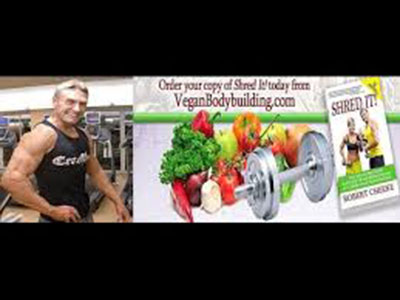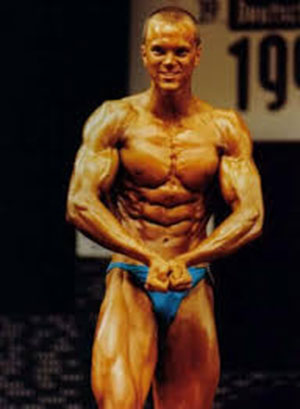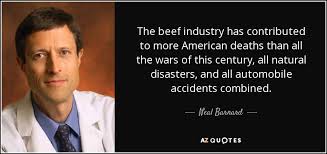The United Nations is the single greatest tangible commitment to peace in the modern world. There is another, much older institution of peace dating back to ancient times – the Olympics. There are more countries participating in the Olympics then there are affiliated with the United Nations. Nowhere else do combatant nations spend two weeks living together, competing, learning about each other, developing friendships, and thereby promoting world peace.
It is incredibly inspiring to see the commitment of a nation that has never won a single Olympic medal – ever – competing equally with the larger, more powerful nations. Even more inspiring is witnessing the courage, fortitude, and determination of a nation that has only one brave athlete to send, competing equally with nations that can send hundreds of athletes.
Because of this, the Olympics deserve to be recognized for their value and relevance, and as one of the greatest institutions of peace of all time. In a very real sense, athletes can make a significant contribution to world peace. The Vegan lifestyle has more to offer in terms of competitive advantage than illegal performance-enhancing drugs. Why? Typically, when vegan athletes compete, they are the minority of participants, but win the majority of competitions. In one competition, vegan athletes were 10% of the participants, and yet they won 60% of the competitions.
Vegan athletes have a significant contribution to make to world peace. Vegan International is pleased to present a few of these athletes.
“I became vegan when I was a skinny teenager. Over the next decade following a vegan diet, I gained 75 pounds and became a 2-time natural bodybuilding champion. Clearly, no meat was no problem for me.” Robert Cheeke
“Eating meat for so long, I was scared to make the change. After learning more about farmed animal abuse I went vegan. My diet changes with my goals and competition prep, but always stays easy and delicious.” Bianca Taylor, Bodybuilder and Model
“You can build the fastest, strongest, and most powerful body without contributing to needless animal suffering”. Seba Johnson, Olympic Skier
“I changed my diet about four years ago because I wanted to cut out red meat for health reasons. From there, I stopped eating other meat products and then dairy. Finally I went vegan.” Mike Zigomanis, Champion Hockey Player
“There was always something off-putting to me about eating animals. I remember petting a chicken on my Grandparents’ farm and realizing that she was another living creature with feelings and emotions. Like most people, I grew up with dogs and cats I loved and cherished. While holding this chicken I thought, “How is she any different from them?” Once I made that connection, there wasn’t any difference to me. I couldn’t bury my head in the sand any longer.” Austin Aries, Professional Wrestler
“Being vegan is not a hindrance but rather a tool to make you the very best you can be. Do it for yourself, for the animals and for all those you’ll inspire.” Holly Noll, Bodybuilder
“I realized how absurd the notion of ‘needing’ meat in the diet was. I never looked back…View it as a positive change and look forward to all of the new amazing, healthy, and delicious foods you can eat.” Mac Danzig, UFC Fighter
“Ethics was, and continues to be, my primary motivator, but I’m also motivated by the diet’s efficiency and sustainability, and the compelling evidence in its favor.” Marcello Torres, Bodybuilder
“Vegan athletes are making an international impact on mainstream fitness. I feel great knowing that I’m not contributing to animal suffering. Now it’s easier than ever to find delicious vegan options.” Torre Washington, Bodybuilder
“Does it matter if our protein comes from plants rather than animals? Proteins consist of twenty amino acids, eleven of which can be synthesized naturally by our bodies. The remaining nine – what we call essential amino acids – must be ingested from the foods we eat. A well-rounded whole food plant-based diet that includes a colorful rotation of foods like grains, nuts, seeds, vegetables and legumes will provide all of these amino acids for even the hardest training athlete. I can absolutely guarantee that eating plant-based you will never suffer a protein deficiency!” Rich Roll, Ultra-Endurance Athlete
“Other bodybuilders eat steak, chicken, eggs, whey protein. I just eat vegan versions of that; tempeh, tofu, seitan, rice and pea protein, some nuts and seeds, spinach and broccoli.” Ed Bauer, Champion Bodybuilder
“I made the switch to vegan after a decade of eating vegetarian. It’s important to find an approach that works for you. Try starting with Meatless Mondays. Once you can do it for a day, try doing it for a few days, then do it during the week. After discovering delicious vegan versions of foods I already loved, it was easier to ditch meat altogether. Just like in the ring, you can’t jump in without first giving yourself the tools and the knowledge to succeed.” Austin Aires, Professional Wrestler
“I feel the best I have ever felt in my 32 years, energy is super high, can lift more weight I the gym, skin is in better condition, feel light, never bloated, feel fresh.” Four-Time Formula One Champion Lewis Hamilton
“Once I started, I fell in love with the concept of fueling your body in the best way possible. Not only does it help me on the court, but I feel like I am doing the right thing for me.” Tennis Great Venus Williams
“Eating vegan makes me more aware of my body on the court…more alert.” Novak Djokovic, Professional Tennis Player who held the Number One ranking for 223 weeks.
“I was trying to play lighter this year, be easier on my joints and on my feet. I feel much better.” Damian Lillard, two-time National Basketball Association All, Star Portland Trail Blazers
“Eating a vegan diet has changed my everyday living. I sleep better. I wake up in a better mood. I recover faster. I’m not so inflamed, not so achy. I feel better overall in everything that I do. I can take in more information easier. My mind is just open.” Wilson Chandler, Professional Player, Denver Nuggets, National Basketball Association
“After a point, nutrition plays a huge part in how quickly you can recover, how hard you can push yourself the next day, back-to-back days and stuff like that. I feel like it’s helped me tremendously, and given me a big edge in that regard.” Griff Whalen, National Football League Player who has played for the Miami Dolphins, San Diego Chargers, New England patriots, and Baltimore Ravens

I recently spent time with perhaps the top vegan bodybuilder today, Torre Washington. Torre is the new king of the vegan bodybuilding world as far as I am concerned at the time of this writing. He is a real star now, reaching heights I never reached, connecting with audiences I never got my message to, and building a physique that I was never able to sculpt. And along the way he has won 3 times the amount of competitions I ever won, and he’s just getting started.
Robert Cheeke, best-selling author of Shred It! and Vegan Bodybuilding & Fitness, 2-time champion bodybuilder, and founder/president of Vegan Bodybuilding & Fitness – www.veganbodybuilding.com, Robert@veganbodybuilding.com

Austin Aires has been a professional wrestler for more than a decade. He is known as “The Greatest Man That Ever Lived.” Over the course of his career on the independent scene Aries won multiple championships, most notably in TNA (World Heavyweight, World Tag Team, and 6-time X Division Champion). He has won the Ring of Honor twice.
Austin Aires has been a vegetarian for over a decade and a vegan since 2011. This provided the genesis for a book he wrote, “Food Fight: My Plant Powered Journey from the Bingo Halls to the Big Time”. This is not a wrestling book, although Aries touches on his early training and rise to becoming TNA world champion, six-time X-Division champion, Ring of Honor world champion and now in WWE’s cruiserweight division. The book not only provides advice and guidance for those who follow a vegan lifestyle, but also provides Aries’ views on the merits of the food we eat, and challenges the reader to consider the choices they have when eating.

Reflecting on more than twenty years that I have lived a vegan lifestyle is something I do throughout the year, especially around my December 8th vegan anniversary. I think about what the vegan movement and scene were like back in the mid-90s, what types of foods, restaurants, products, and levels of awareness there were when I first adopted the compassionate lifestyle. I think about who I was, who I’ve been, and who I’ve become, and I think about lives lost, lives saved, and lives influenced as a result of my role as a vegan member of society. When I look more specifically at the vegan bodybuilding movement, I have an entire career worth of experiences, observations, and lessons learned to reflect on.
I was one of the early adopters of the vegan bodybuilding lifestyle. I don’t claim to be the first, but I was certainly part of the original vegan bodybuilding crew. The late Robbie Hazeley from the UK, Kenneth Williams from California, and
Alexander Dargatz from Germany were among the others who were competitive vegan bodybuilders during the same era as me in the early 2000s. Even in the mid 2000s the number of competitive vegan bodybuilders could be counted on one or two hands, though there were thousands of vegan athletes emerging among many sports disciplines.
In the course of athletic activity, blood viscosity (“thickness”) often increases, which causes a progressive loss of tissue oxygenation, potentially degrading athletic performance. Reduced viscosity, which can be achieved through plant-based diet, improves tissue oxygenation, reduces heart rate during exercise, and reduces dehydration. In a study of 48 individuals following vegan eating patterns, blood viscosity was significantly lower. Atherosclerosis reduces blood flow not only to the coronary arteries, but also to other parts of the body. By the age of 20, approximately 10 percent of the population in developed countries has advanced atherosclerotic lesions in the abdominal aorta, reducing blood flow and contributing to disc degeneration and lower back pain. Similarly, atherosclerosis can reduce blood flow to the legs, the brain, and other parts of the body. Plant based diets have been shown to reverse atherosclerosis, increasing blood flow to all parts of the body. Inflammation occurs not only in the artery walls contributing to atherosclerosis, but also in the joints and the soft tissues of the body. A 2017 review published in Public Health Nutrition found that vegan diets reduce inflammation. Researchers reviewed 18 prior studies, finding that individuals who followed a vegan diet for at least two years lowered their serum levels of C-reactive protein, a biomarker of inflammation, compared with those who did not follow a vegan diet.To learn more about why eating fruits, vegetables, grains and legumes are the ultimate power foods for athletes, visit PCRM.org/Athletes.

Why Athletes Are Racing to a Vegan Diet by Neal Barnard, M.D.
Reduced Blood Viscosity and Improved Tissue Oxygenation
Improved Blood Flow
Reduced Inflammation